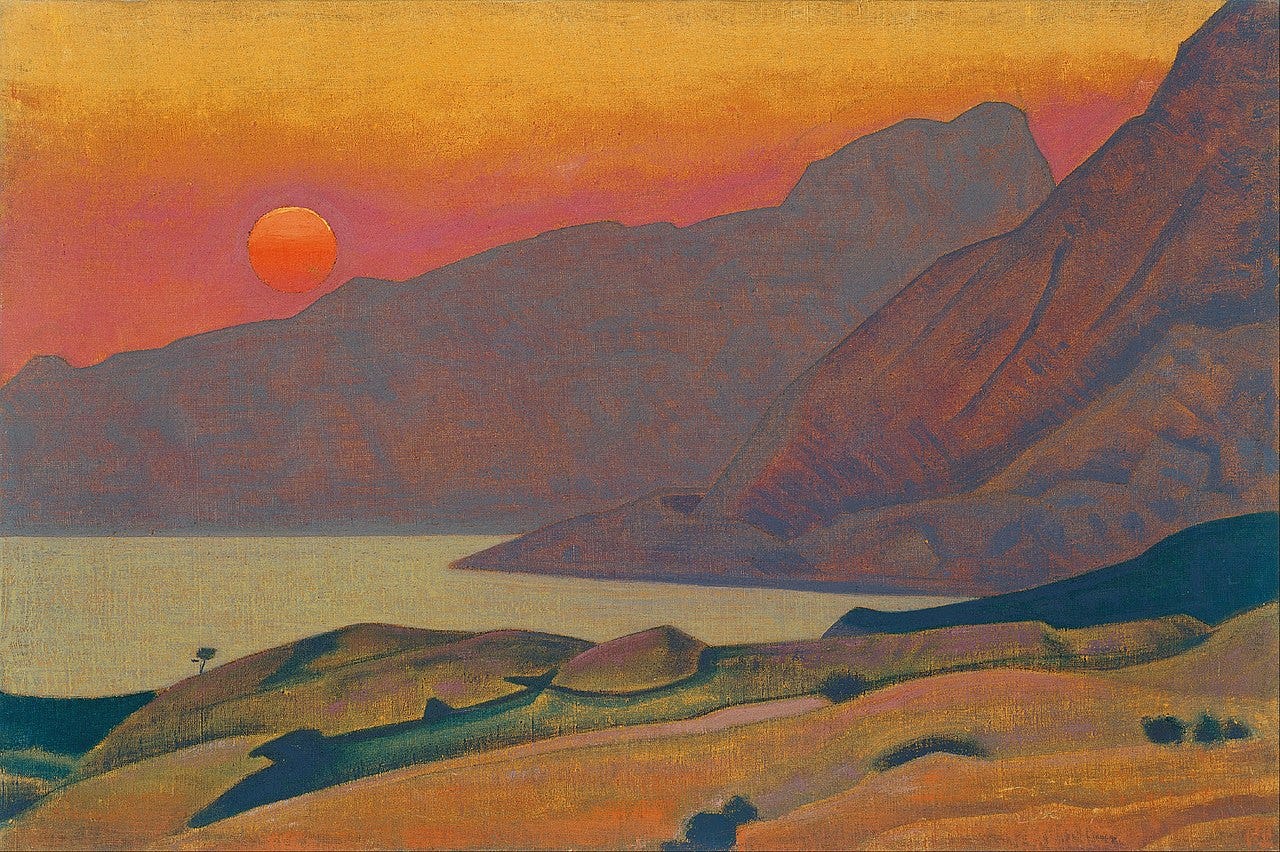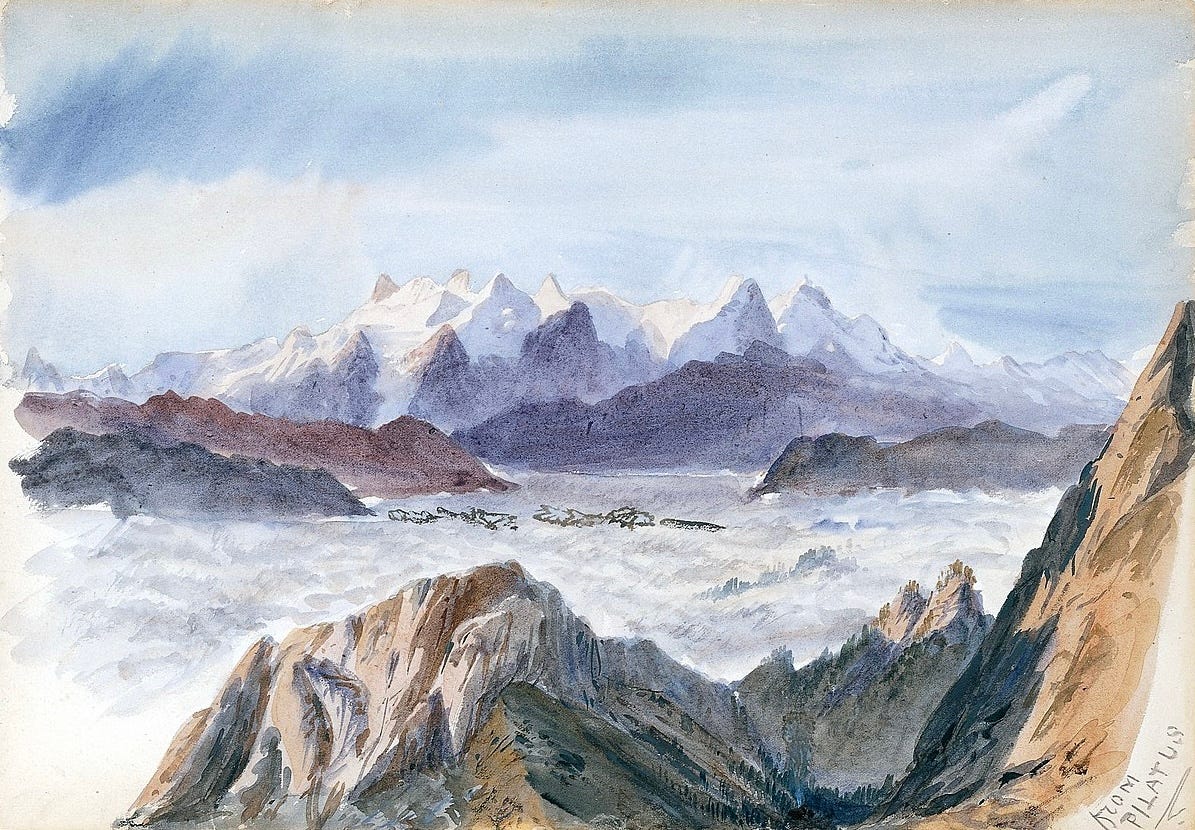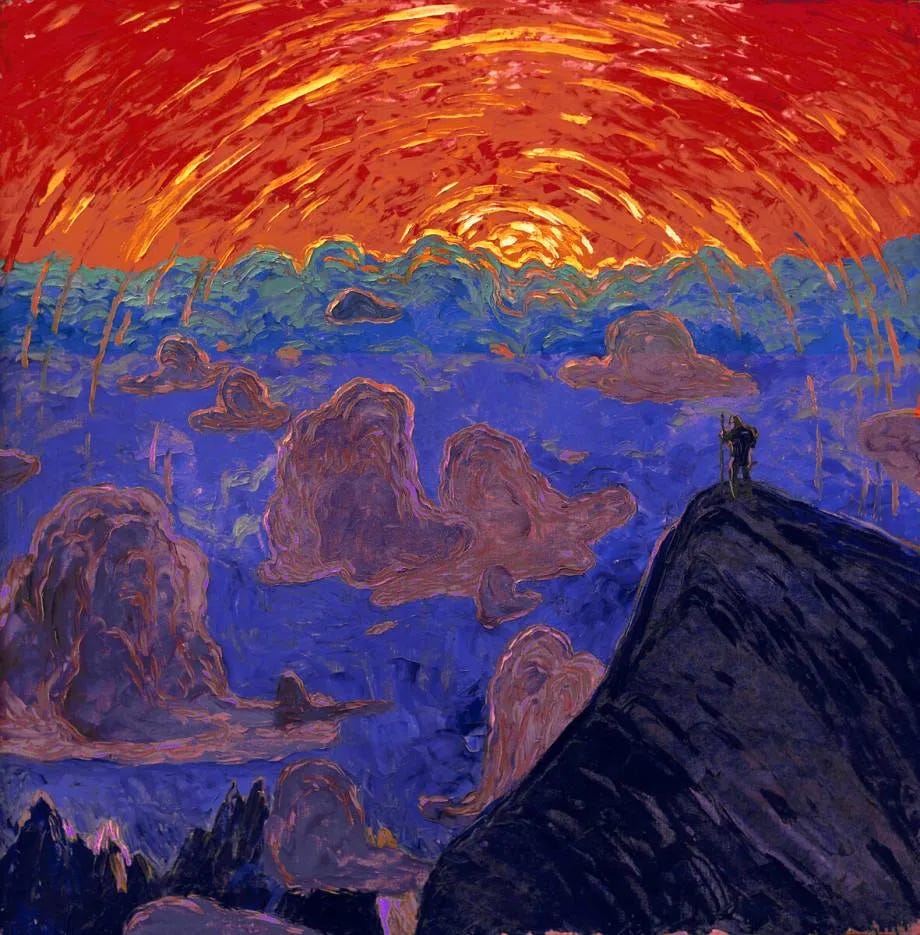Welcome to
. The following is part of our Gaia’s Notebook series, where we take a look at Mother Earth in all her glory. For the full map of Cosmographia posts, see here.Like yin and yang, the word ‘awe’ invokes a pair of opposite but interconnected meanings. Originally deriving from the Old English ‘ege’, the term once only meant dread, or a feeling of fear.1 It was only much later, upon the work of the Romantics, that awe incorporated terror’s twin: wonder.
Awe is the only appropriate emotion for mountains. Their lofty peaks, so often shrouded in mist and snow, induce feelings of both foreboding and the sublime. A mountain demands respect; they are killers. But they’re also beautiful. Their sheer size force us to realise our own insignificance — there are few better ways to put life and its problems into perspective than to gaze up at a mountain.
Our use of mountains in metaphor is very telling. They are the goal, the trial, the aspiration. To summit is to overcome, to conquer, to win. Humans seem to find their very existence a provocation. A gauntlet thrown down. They call to us, tempting us with their challenge.
So, let us go — to the mountains.
We are the Pilgrims, master; we shall go Always a little further: it may be Beyond the last blue mountain barred with snow, Across that angry or that glimmering sea…
1. The Andes of Ecuador — Frederic Edwin Church (1855)
2. James Elroy Flecker, from “The Golden Road to Samarkand” (1913)
The secret of the mountain is that the mountains simply exist, as I do myself: the mountains exist simply, which I do not. The mountains have no “meaning,” they are meaning; the mountains are. The sun is round. I ring with life, and the mountains ring, and when I can hear it, there is a ringing that we share. I understand all this, not in my mind but in my heart, knowing how meaningless it is to try to capture what cannot be expressed, knowing that mere words will remain when I read it all again, another day.
3. Among the Sierra Nevada, California — Albert Bierstadt (1868)
4. Peter Matthiessen, from The Snow Leopard (1978)
The jagged mountains were pure blue in the dawn and everywhere birds twittered and the sun when it rose caught the moon in the west so that they lay opposed to each other across the earth, the sun whitehot and the moon a pale replica, as if they were the ends of a common bore beyond whose terminals burned worlds past all reckoning.
5. Monhegan, Maine - Nicholas Roerich (1922)
6. Cormac McCarthy, from Blood Meridian (1985)
These mountains that you are carrying, you were only supposed to climb.
7. From Mleta to Gudauri — Ivan Aivazovsky (1868)
8. Najwa Zebian, from The Nectar of Pain (2016)
I felt my lungs inflate with the onrush of scenery — air, mountains, trees, people. I thought, “This is what it is to be happy.”
9. Iselle from Mount Pilatus — John Singer Sargent (1870)
10. Sylvia Plath, from The Bell Jar (1963)
Because in the end, you won’t remember the time you spent working in the office or mowing your lawn. Climb that goddamn mountain.
















